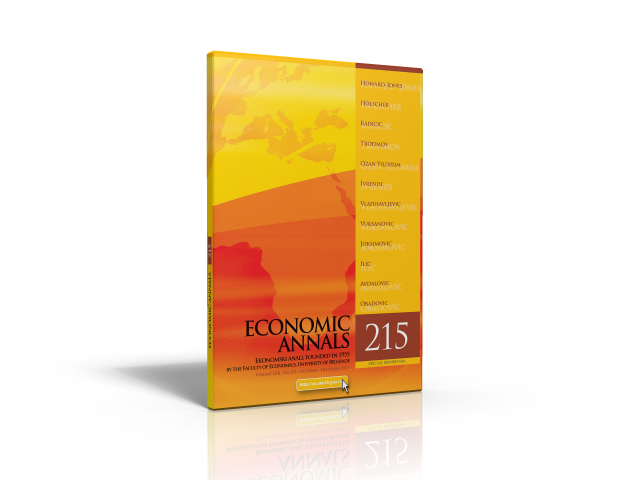THE PUBLIC SECTOR WAGE PREMIUM AND FISCAL CONSOLIDATION IN SERBIA
##plugins.themes.bootstrap3.article.main##
##plugins.themes.bootstrap3.article.sidebar##
Marko Vladisavljević
Abstract
Responding to a high fiscal deficit, the Serbian government introduced a set of fiscal consolidation measures at the beginning of 2015, including a 10% public sector wage cut. This paper analyses the difference in wages between the public and the private sector in Serbia and changes in the public sector wage premium after the measures were introduced. The results show that, similarly to many other countries, wages in the Serbian public sector are on average higher than in the private sector, partially due to the better labour market characteristics of public sector workers. The public sector wage premium was 17.4% in 2014 and was mainly driven by higher returns to education, work experience, and occupation in this sector. In 2015 the premium dropped by 6 percentage points due to a lessening of the difference in returns between the sectors. Therefore, in addition to reducing budget expenditures, fiscal consolidation in Serbia has reduced wage inequality between these sectors.
##plugins.themes.bootstrap3.article.details##
Keywords
Public-private wage gap, Fiscal consolidation, Wage decomposition, Serbia.
JEL Classification
J31, J45, J38
Issue
Section
Articles
How to Cite
Vladisavljević, M. (2017). THE PUBLIC SECTOR WAGE PREMIUM AND FISCAL CONSOLIDATION IN SERBIA. Economic Annals, 62(215), 111-134. https://doi.org/10.2298/EKA1715111V
How to Cite
Vladisavljević, M. (2017). THE PUBLIC SECTOR WAGE PREMIUM AND FISCAL CONSOLIDATION IN SERBIA. Economic Annals, 62(215), 111-134. https://doi.org/10.2298/EKA1715111V

